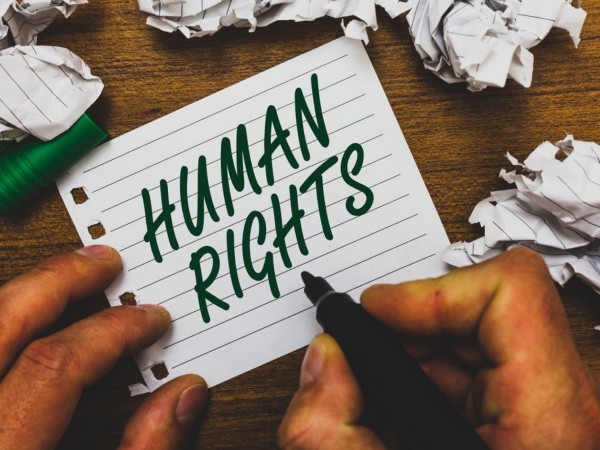Civil liberties affected by Coronavirus.
- The Coronavirus Act 2020 summary
- What are the government actions in practice?
- What if you fail to comply?
- Can I be forced to take the Covid vaccine?
- Your civil liberties and human rights
- Terms and conditions of organisations
- Are your human rights and civil liberties affected by Coronavirus?
It looks like Coronavirus is here to stay. It is a replicating virus and is capable of reinventing itself and seems like it is a law unto itself!
The Coronavirus Act [2020] summary
The Coronavirus Act [2020] was enacted in as part of the urgent responses by Government to the pandemic Covid-19. The questions, “Are civil liberties affected by Coronavirus and the Coronavirus Act?”
Some of these provisions are:
- emergency registration of health workers and social workers.
- provisions for emergency volunteers such as loss of earnings and travel expenses.
- managing the requirements, such as DBS and other disclosures, for working with sick and vulnerable adults.
- the modification of care and support provision in the community by local authorities.
- temporary modifications to how deaths, cremations and still births are registered and certified with authorities.
- the temporary closure of education institutions and childcare provisions have been temporary closed until further notice under the provisions of this Act.
- the alternative arrangements for the judicial court cases such as the decisions to decide certain cases through online media; and
- Government requests for information about the food supply chain.
The detail in the Coronavirus Act undoubtedly raises issues about how these provisions affect the individual’s liberty and human rights. If the Government does not introduce effective measures to control this virus, it will make too many of us ill and some gravely ill.
What are the Government actions in practice?
Schedule 21 of the Coronavirus Act details what the government actions are in practice.
Schedule 22 details the prohibition of social gatherings during the pandemic, indoors or outdoors.
The government has the right to ensure that screening and assessment take place in areas of business. It can ask for documents, information and question you about your health regarding the coronavirus infection. Government employees have powers to enforce self-isolation, quarantine and use contact tracing if persons who carry virus or have symptoms. This is because this health scare is a national security concern and a pandemic.
If you risk spreading the virus, you are subject to the powers and controls under schedule 21. This also applies if you have been in areas that have been exposed to people infected with the virus. This is usually recognised through the contact tracing system or through questioning and assessment tests, blood tests for the virus. Even if your test results are inconclusive, you will still have to self-isolate for up to 14 days. You can be tested again before you can resume your normal activities and contact other people.
What if you fail to comply?
If you break the law, you may be arrested and charged, face a fine or even imprisoned. The usual rules for arresting someone apply. A fine of up to £1000 is possible but there have been fines up to £10000 for businesses or proprietors. Government actions must be necessary and proportionate to your circumstances.
You can appeal through the magistrate’s court if you have reasonable grounds. Obviously, your general well-being and mental health must be catered for when government challenges you. By failing to comply with the Coronavirus Act, you pose a risk to another person’s health and life. As a result, is highly likely that you will be charged with the offence.
Can I be forced to take the Covid vaccine?
It is against civil liberty to force a person to take the Covid Vaccine or any vaccine. Civil liberties affected by coronavirus apply to you if you are being forced to take the vaccine.
Your civil liberties and human rights
Yes, you do still have these rights but not to the extent where you are endangering the life of others. For example, no one can force you to take vaccines. This is because, ultimately, as an adult, you have the responsibility for your health and well-being.
Although you have been offered to take the vaccine, vaccine passports are not made mandatory by law. However, the government, businesses and organisations do not have to accept you into their organisation if you have not been vaccinated. Their terms and conditions of business may stipulate that you are vaccinated or need to take a coronavirus test.
Terms and conditions of organisations
The pandemic is likely to induce us to read the terms and conditions of business more often. For example, what if you want to fly to another country and you have not been vaccinated for Coronavirus? You may be able to buy a flight ticket but what happens after that? When you arrive at the airport, the airport could ask you for a vaccine passport to enter the premises. You may be asked to take a coronavirus test. If you are negative for coronavirus, you still may be asked for a vaccine passport by the airline you are travelling with. Their terms and conditions may not allow you a boarding pass for the plane.
Are your human rights and civil liberties affected by the Coronavirus Act?
If you have not read the terms and conditions of business, it might be difficult to obtain a refund for your flight. This is how the coronavirus affects your future daily life. Your human rights and civil liberty is not affected directly because you have refunded to take the vaccine. However, for the public good, the government has the duty to introduce measures that will protect the NHS and save lives.
Sign up to our newsletter here
Contact us with your enquiries


Recent Comments